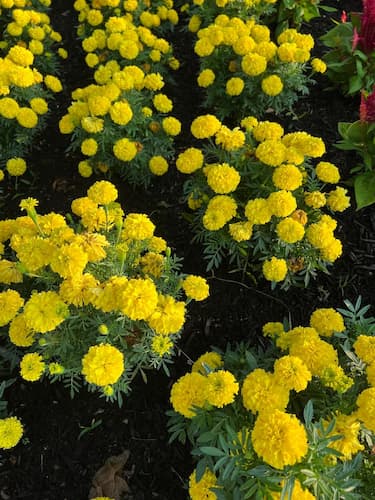Companion Plants for Organic Insect Control

About Companion Plants
Companion plants are a great way to control garden insects organically, without harmful, nasty chemicals. Some companions also provide nitrogen or other organic nutrients.
Companion gardening is the practice of planting two different plants in close proximity to each other. One or both plants helps the other, giving off the by-products that the other plant needs. Those by-products are chemicals and micro-nutrients.
Other beneficial plants provide some protection against insects and planting a few of them near the desired plant will keep the insects away.
Great Companion Plants
| Try: | With: | For: |
| Borage | Pumpkins, squash, cucumbers and a variety of plants. Tomatoes | Attracts bees and other pollinators. Deters tomato hornworm |
| Basil | Peppers, Tomatoes, Marigold | Keeps aphids, whiteflies, hornworms and mosquitos away |
| Dill | Cabbage / Cole family | Attracts beneficial wasps that kill cabbageworms |
| Garlic | Roses, tomatoes and a wide variety of flowers and vegetables. | Wards off aphids and other insects and pests. Deters Japanese Beetles. It also makes a great organic insect repellent spray. |
| Mint | Cabbage and Broccoli | Deters Cabbage moths |
| Marigold | A wide variety of flowers and vegetables. | Wards off insects. They are also used in Organic Insect sprays. |
| Nasturtium | Pumpkins, Squash, and a wide variety of vegetables. | Deters Cucumber Beetles, Squash Bugs, Aphids, and more. And, they are edible! |
| Radishes | Spinach and other leaf crops | Attracts leaf miners away from spinach. The radishes will have leaf damage, but the root is unharmed. |
| Rosemary | Beans, Broccoli, cabbage, Carrots | Deters Bean Beetles, Cabbage moths and carrot flies |
| Sage | Carrots | Wards off Carrot Fly |
| Thyme | Cabbage | Deters cabbage worm |
| Zinnias | Broccoli, Cabbage, Cauliflower | Nectar attracts ladybugs to control cabbage worms. Try dwarf zinnias. |
Related Articles
Subscribe To Our Newsletter
Please support our site. Shop for:
How To Grow
Other Gardening
Our Community
Contact Us
- rmmatthews100@hotmail.com
- 585-721-6528
- Rochester, NY
©1999-2024 GardenersNet.Com, All Rights Reserved

